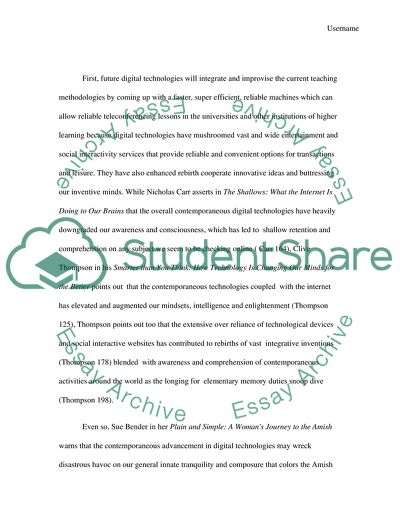Cite this document
(The Future of Digital Technologies in Teaching Career Essay Example | Topics and Well Written Essays - 1250 words, n.d.)
The Future of Digital Technologies in Teaching Career Essay Example | Topics and Well Written Essays - 1250 words. https://studentshare.org/education/1880049-the-future-of-everything
The Future of Digital Technologies in Teaching Career Essay Example | Topics and Well Written Essays - 1250 words. https://studentshare.org/education/1880049-the-future-of-everything
(The Future of Digital Technologies in Teaching Career Essay Example | Topics and Well Written Essays - 1250 Words)
The Future of Digital Technologies in Teaching Career Essay Example | Topics and Well Written Essays - 1250 Words. https://studentshare.org/education/1880049-the-future-of-everything.
The Future of Digital Technologies in Teaching Career Essay Example | Topics and Well Written Essays - 1250 Words. https://studentshare.org/education/1880049-the-future-of-everything.
“The Future of Digital Technologies in Teaching Career Essay Example | Topics and Well Written Essays - 1250 Words”. https://studentshare.org/education/1880049-the-future-of-everything.


